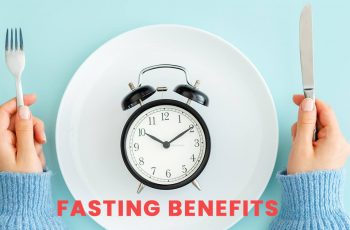College is a time of new experiences, changes, and questions that remain unanswered. You’ll make friends, have fun at parties and enjoy a typically laid-back lifestyle as you ride this wave all the way through college.

Here’s a guide on how to lose weight in college for those who want more confidence and self-esteem.
You have probably heard of “Freshman 15,” the initial weight gain in your first few years at college.
FRESHMAN 15
Freshman 15 is actually based on the theory that college students gain 15 lbs during their first year at university. A recent study found out 3% of participants gained more than 15 lbs. But more people experienced a hike in the scale.
We all experience a significant change in our weight due to our lifestyle and environment during the first semester of college. Late-night munchies, sudden party plans, and weekend jams happen all the time. You can avoid the pitfalls of weight gain by following this simple plan.
Here are the Top 5 student weight loss tips that will help you tremendously to shed more than 20 pounds in college.
1. Stress and Emotional Eating

Emotional eating is a way of escaping any emotions that you may be feeling. College life is the perfect time to build better eating habits and improve your relationship with food. There are a lot of tips that can help you with emotional eating. :
•Know your triggers: The first step towards building a better food relationship is knowing your triggers. Get a blank sheet of paper and on it list all the moments when you felt compelled to indulge in unhealthy snacks because your emotions got out of control.
• Don’t stay up late: Staying up late is a common trigger for cravings for unhealthy foods.
2. Snack Smartly

Unnecessary snacking is an absurdly common habit that many of us have fallen into while watching our favorite movies. We don’t even realize how many bags of chips we consume in just one hour.
Here are some healthy dorm room snacks:
- Sliced veggies like carrots, bell peppers, broccoli
- Fresh fruits
- Nut butters on sliced banana, whole-wheat crackers, celery sticks
- Tortilla chips or whole grain chips
- Low fat cheese sticks
- Muesli with milk
- Non-fat yoghurt with fruits or nuts
- Roasted chickpeas
- Sweet potatoes
- Canned beans with seasonings
3. Track Your Meals

With a meal tracking app, you can log your daily meals and get an idea of how many calories or macronutrients you consumed in a day. Tracking your meals can help you cut down on the junk food that’s been ruining your diet. You can take a closer look at what you’re eating and make sure that it fits into your overall goals. Meal prep will become natural for you once the first step of tracking your meals has been mastered.
4. Cut Down Sugar

We all know that sugar is one of the biggest contributing factors to weight gain. These packaged foods are not only unhealthy but also packed with sugar.
Sugar not only causes you to gain weight but also increases insulin levels. When you eat simple carbs, your insulin levels rise. This leads to an increase in blood sugar and the storage of fat for future use as energy.
If you’re looking for a way to satisfy your tingling sweet tooth, have some fresh fruits. Yes, they contain some amounts of sugar but they also provide you with major health benefits.
5. Non–Exercise Activity Thermogenesis

The energy we consume in our daily lives, other than sleeping, eating, or working out is called non-exercise activity thermogenesis (NEAT). If you don’t like the idea of having a workout routine or you don’t want to exercise every day, NEAT comes to your rescue as a perfect student weight loss solution. You can burn more fat by increasing your physical activity throughout the day like taking the stairs, walking with friends, bike riding around the city.
If you know someone who might like this, please click “Share”!

